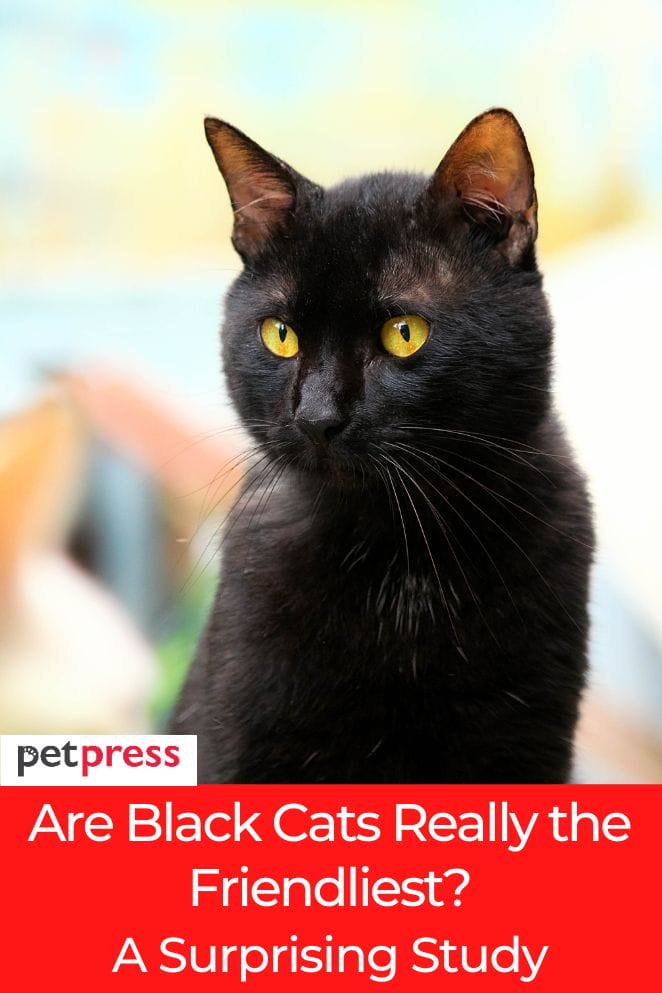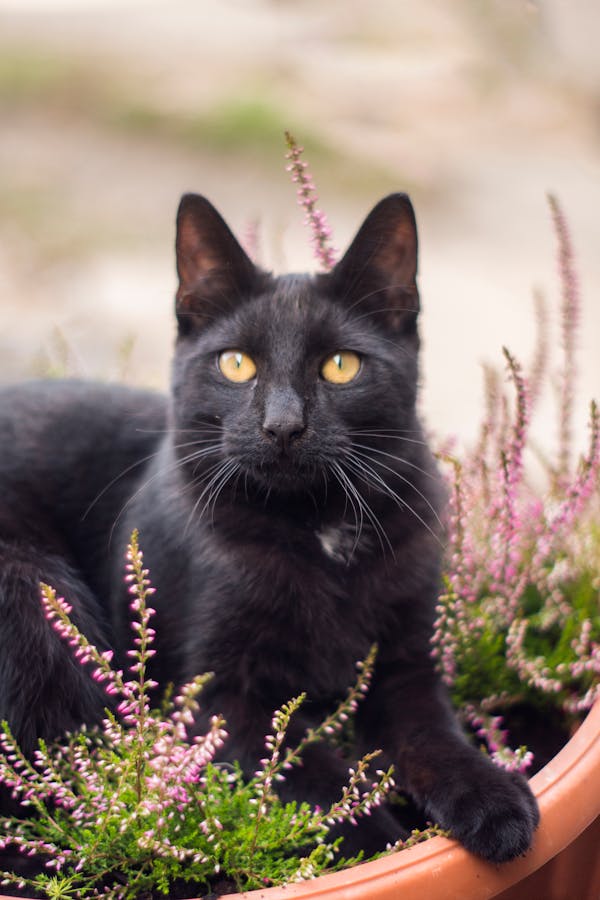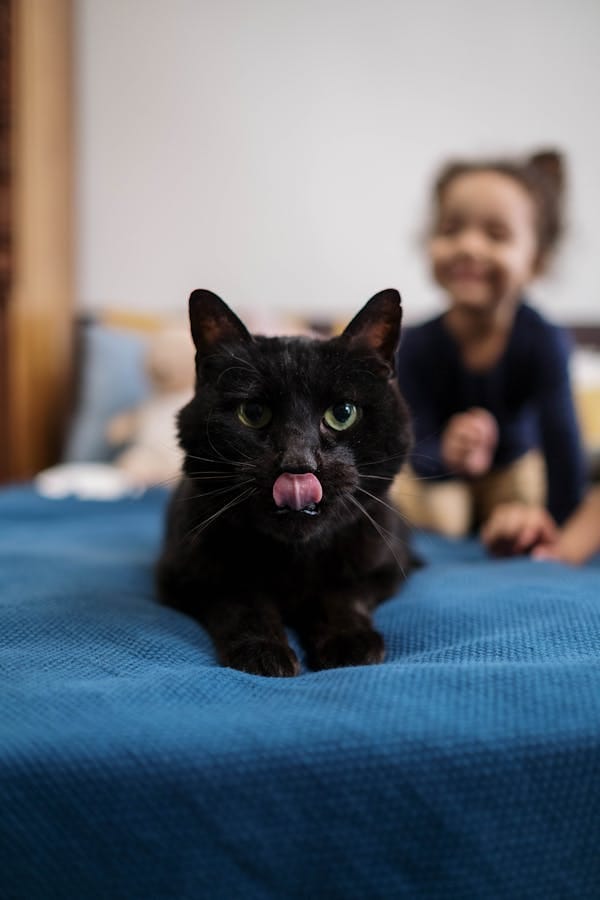
Black cats have been the subject of many myths and misconceptions over the years.
While some people see them as omens of bad luck, others view them as symbols of mystery and grace.
But what about the idea that black cats are the friendliest?
A recent study explores this interesting question and offers new insights.
Debunking Myths About Black Cats
Black cats and bad luck
The idea that black cats bring bad luck has been around for centuries.
During medieval times in Europe, black cats were often associated with witches, which led to a lot of superstition.
Sadly, these misconceptions still exist in some cultures today.
However, not all cultures view black cats negatively.
In Japan, for example, they’re considered a symbol of good fortune, and sailors used to keep black cats on ships for luck.
So, are black cats really unlucky?
It all depends on where you are and what beliefs you hold.
The “Mysterious” nature of black cats
There’s no denying that black cats have a certain air of mystery.
Their sleek, dark coats and bright, captivating eyes can make them seem otherworldly.
While this has sparked both fascination and fear, it’s important to remember that a black cat’s personality is shaped by much more than just the color of its fur.

Are Black Cats Different?
Personality traits of black cats
Some research suggests that black cats may have unique personality traits.
A 2020 study published in Applied Animal Behaviour Science looked at how a cat’s coat color might influence its behavior.
While the findings can vary, black cats were often described as more relaxed and adaptable compared to cats with other coat colors.
Shelter workers also report that black cats tend to be affectionate and easygoing, making them great companions.
However, it’s worth noting that these traits may have more to do with how black cats are treated and perceived, rather than being directly linked to their fur color.
Factors influencing cat personality
While black cats may sometimes seem friendlier, many different factors contribute to a cat’s temperament:
Breed
Although black fur can appear in many breeds, a cat’s personality is more closely tied to its breed than its coat color.
For example:
- Bombay cats, which are exclusively black, are known for being sociable, intelligent, and playful.
- Mixed-breed black cats, on the other hand, may have a wider variety of personalities.
Early socialization
Cats that are handled and exposed to humans at a young age tend to be more friendly and social.
A black cat raised in a loving, interactive environment is more likely to show outgoing behavior and enjoy human company.
Individual temperament
Every cat is unique.
While black cats may often be seen as calm and sweet, it’s important to remember that each cat’s individual personality plays a larger role than their fur color.
Environmental factors
The way a cat is treated and the conditions it lives in can greatly affect its behavior.
A black cat that is well cared for, given attention, and provided with a safe environment will likely grow up to be a loving, affectionate companion.

Finding the Perfect Black Feline Friend
Adopting a black cat can be a deeply rewarding experience, as these cats often bring affection and companionship into your life.
If you’re considering adopting one, here are some helpful tips to ensure you find the right match:
Visit shelters
Black cats are sometimes overlooked in shelters due to lingering superstitions and misconceptions.
As a result, they can spend longer waiting for a home than other cats.
Many shelters even hold special adoption events or promotions for black cats, making it a great opportunity to find your new feline friend.
Spend time getting to know them
Before making a decision, take time to interact with the black cat you’re considering.
Spend time playing, petting, and observing how they behave around people and other animals.
This will help you understand their personality and whether they seem like a good fit for your lifestyle.
Learn about their background
Understanding a cat’s history can give you valuable insight into their behavior and needs.
Ask shelter staff or previous owners about the cat’s background—such as whether they’ve been socialized, if they have any health concerns, or how they interact with people.
This information can help you prepare for a smoother transition into your home.
Provide a safe and loving home
Once you’ve adopted your black cat, create a comfortable and safe environment where they can feel secure. Provide a cozy spot, healthy food, and plenty of attention.
When a cat feels safe and loved, they’ll begin to trust you more and can develop into a loyal, affectionate companion.

Final Thoughts
So, are black cats the friendliest? While studies and anecdotes suggest they may have a calmer, more affectionate demeanor, the truth is that every cat is an individual.
What really matters is how they’re raised, treated, and loved.
By dispelling myths and embracing these beautiful felines for who they are, we can give black cats the recognition—and homes—they deserve.
- Does Cat Litter Melt Ice? The Complete Guide to Winter Safety - January 30, 2026
- Happy Tail Dogs: Understanding This Common Canine Condition - January 29, 2026
- How Cold Can Outdoor Cats Handle? Feline Winter Safety - January 27, 2026


GIPHY App Key not set. Please check settings